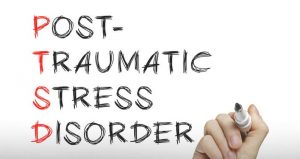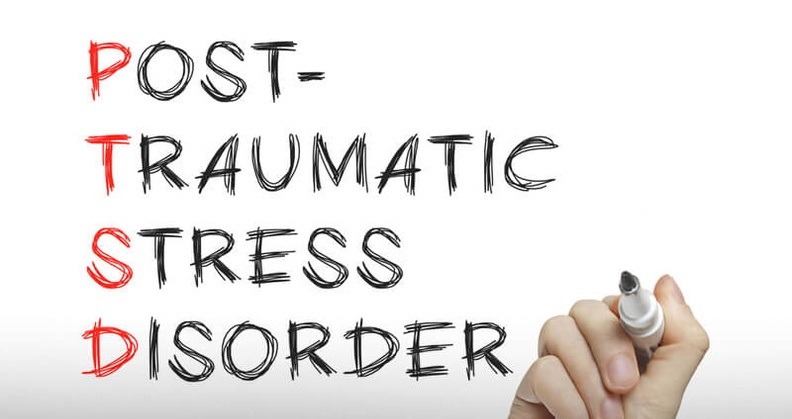 PTSD stands for post-traumatic stress disorder. In order to be diagnosed with PTSD one has to have endured a traumatic event which includes witnessing or experiencing a threatened death to self or others, actual or threatened serious injury or sexual violence. The definition of trauma has also expanded to learning of a close friend or relative who was exposed to one of the prior traumas. I have had many folks come to me and say they think they have PTSD because they got divorced and it was very traumatic, or because they are having a hard time grieving the loss of a family member. While those are all very sad and traumatizing events, they do not qualify as “trauma” for the purposes of diagnosing post-traumatic stress disorder according to the DSM-5. However, we don’t want to dismiss the impact that those life events can have on an individual and therapy can be a very powerful tool for overcoming those losses. The therapy would likely be more focused on grief and loss and life transitions, not on PTSD.
PTSD stands for post-traumatic stress disorder. In order to be diagnosed with PTSD one has to have endured a traumatic event which includes witnessing or experiencing a threatened death to self or others, actual or threatened serious injury or sexual violence. The definition of trauma has also expanded to learning of a close friend or relative who was exposed to one of the prior traumas. I have had many folks come to me and say they think they have PTSD because they got divorced and it was very traumatic, or because they are having a hard time grieving the loss of a family member. While those are all very sad and traumatizing events, they do not qualify as “trauma” for the purposes of diagnosing post-traumatic stress disorder according to the DSM-5. However, we don’t want to dismiss the impact that those life events can have on an individual and therapy can be a very powerful tool for overcoming those losses. The therapy would likely be more focused on grief and loss and life transitions, not on PTSD.
The most common forms of trauma seen in PTSD stem from sexual trauma and from military related trauma. Sexual trauma is without a doubt an intensely traumatic experience for anyone. This trauma may have begun in childhood or may have happened as an adult, either way it is still a very traumatic event in which it can be very beneficial for someone to seek evaluation and counseling. Childhood sexual trauma can have enduring effects and impact future relationships if left untreated. Sexual trauma as an adult is unfortunately not all that uncommon either. It may be hard to talk about, but more often than not, once you start seeing a counselor it becomes easier and easier to cope with. Sexual trauma is also very prevalent in the military and there may be times of uncertainty regarding reporting the military sexual trauma. Speaking with a counselor can help you come to a decision that you feel most comfortable with.
When folks think of PTSD they typically tend to think of our combat Veterans and military personnel who are potentially facing life and death on a daily basis. PTSD was actually first recognized and identified once they realized that our troops were not coming home from war the same as they had left. Many people can experience shame or guilt around seeking help for post-traumatic stress disorder; however, treatment is the only way that you will get a chance at living the life you once lived and moving forward from the traumas. It makes sense that after enduring war, seeing others die and having near death experiences yourself, you will be traumatized. You are human and these are inhumane things to witness and experience. We encourage you to support your military buddies in seeking help and for you to set an example and break the stigma by seeking help yourself for the events you have experienced.
If you have questions about whether you or a someone you know might have PTSD, please speak with a trained therapist who can properly diagnose the individual. It takes training and expertise to be able to provide a proper mental health diagnosis and this diagnosis is what will inform the treatment that person will receive. It’s not uncommon to be misdiagnosed when it comes to post-traumatic stress disorder so you want to ensure you are in good hands. Here at Freedom Within we have counselor specifically trained to diagnose and treat this condition. We have expertise in working with military personnel, their families and sexual assault survivors.
Call us today and we can further evaluate your situation 619-363-1920 or contact us on our website for more information.


